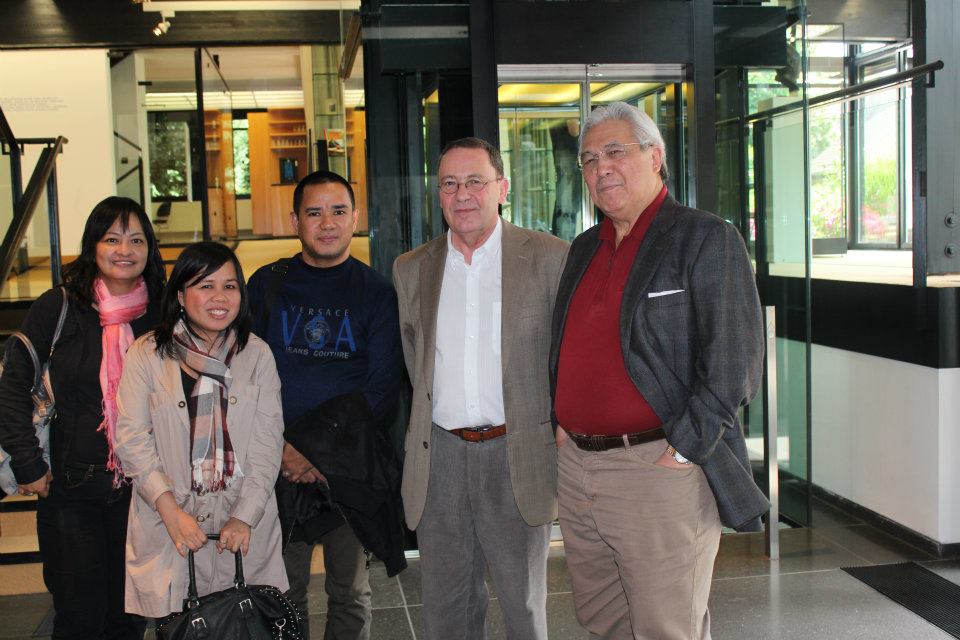Democratic Deficits in the Philippines

By: Lito C. Lorenzana | October 3, 2013
President at Centrist Democracy Political Institute
1Loves.
0Comments.
0People boxed this.
I will borrow heavily from Clarita Carlos book: DEMOCRATIC DEFICITS IN THE PHILIPPINES just published September of this year.
Â
Professor Carlos enumerated the failures in our system that we begin to wonder if after all we are a democracy.
In our structure, we often pay lip service to democratic concepts without truly understanding the underlying implications. In essence our brand of democracy is fragile, its nature fleeting, its deficits glaring unless firmly institutionalized.
I will also cite in tandem, the former Chief Justice Reynato Puno’s speech delivered at the launching of the Carlos book. One of his theses why we have this accumulation of democratic deficits is that the political lifeblood of the country has been under the control of the elite - the oligarchy that has perpetuated the politics of patronage since the American colonial period. The imminent Justice followed up with an incisive description of the perverted role played by succeeding political clans and dynasties using patronage to imbed themselves into the state structure and bureaucracy – in effect soaking itself into the fabric of our daily lives.
Political competition was allowed by the elite and the oligarchy only within the confines of the rubrics laid out by them with designated players who need never look beyond their patronage.
Even the “…judicial system was corrupted by the ability of powerful individuals and groups to influence outcomes.†*(Justice Rey Puno)
Professor Carlos was no less than profound in her indictment of the oligarchy but she offered the seeds of a solution to these deficits.
“In the end, what is crucial in overcoming these democratic deficits is strong political leadership from the top among the three branches of government, and collective political will that can be harnessed from the citizenry.â€* (Prof. Clarita Carlos)
This is easier said than done, so let me isolate a particular principle that could have a tremendous impact on how “political will can be harnessed from the citizenryâ€. This is in fact the sub-topic of my talk today.
The Need for Subsidiarity
It is a given that centralization of power is a major deficit and is now commonly argued that power should be devolved and structures decentralized.
“Central authority should have a subsidiary function, performing only those tasks which cannot be performed effectively at a more immediate or local levelâ€. *(Oxford English Dictionary)
Philippine government structure is too centralized. Most decisions affecting people’s lives are embedded, legally & constitutionally although abnormally, in the President/executive department. Subsidiarity dictates that decision making power is brought to the lowest level competent structures.
Decisions affecting their lives need to be directly influenced by the governed augmenting in the process a healthy political life.
A strong political leadership shows its maturity in its confidence in supporting the lowest levels, not stripping them of power.
Professor Ed Tayao, in one of his talks to the CDM stressed the need for “systematizing Governance, more than empowering peopleâ€. I take this to mean the emphasis of pragmatic and cold blooded approach in translating what it takes to make things work in all levels.
Professor Carlos has provided several recommendations along these lines, foremost of which is the need for capacity building and training for the major beneficiaries of subsidiarity – the local government units and more specifically the local leaders. They are the frontline governance agencies and the real faces of those who govern, intimately known to the governed.
Capacity building also involves the understanding of how scarce resources are to be allocated in all levels and how these are to be deployed efficiently by impersonal public authorities.
Control over the purse strings and the attendant power to source and raise its own revenue and to dispose of the same efficiently is the hallmark of a capacitated LGU.
We have, since 1986, an existing agency attached to the Department of Local Government - The Local Government Academy. It was originally set up to coordinate the capacity building mechanisms of relevant agencies in government.
A quasi academic institution, it was meant to be the training ground for professionalizing the bureaucracy of the LGUs and the leaders themselves imbuing in them the right practices and skills of governance. In this respect best practices of governance are to be observed from other countries and perhaps their salient points adopted.
The Need for Political Reforms
Now let us shift our focus from Subsidiarity to an equally burning issue that this current administration could be in a position to initiate, political parties/electoral reform.
And here I quote Professor Carlos:
“The new leadership must ensure that a reconfiguration of the political party system as well as the pursuit of electoral reform will be carried out to pave the way for principled and party-based leadership, in contrast to purely personality-based leadership that we have now.â€â€œPolitical parties must be required to have clear ways by which they finance their campaign and other activities and where government financing is absent, the support for the candidate forthcoming from the political party should be clear.â€
They are to be the training ground for the leaders of the country and when elected to power they must articulate unequivocally their written platform.
Toward this end, laws need to be enacted to reward loyalty, honesty and accountability; and punish transgressions, corruption and abuse.
Professor Carlos was very detailed in her discussion of the deficits – and they are myriad. But I urge the audience to examine closely the book so as to understand more fully the need not only to be vigilant about our fragile democracy and how we as advocates can advance it in our country. Restructuring of the system and reforms need to be done and this would involve the much maligned constitutional change. On this last point I leave you with parting thoughts from the words of the imminent Justice Reynato Puno:
“This is our unending tragedy. Admittedly, we have not slain this dragon of oligarchic control when we wrote our Constitution in 1935 for our writing hands were guided by our American colonial ruler. Admittedly, we failed to bury to the grave this dragon of oligarchy when we revised our Constitution in 1973 for our hands were manacled by martial rule. But in 1987, we had our best chance to break away from the control of the oligarchs for the people themselves have regained our government through a peaceful revolt.Unfortunately, we blew it when our constitutional commissioners gave the power and responsibility to Congress to dismantle these dynasties. But just inserting one phrase in the then 1987 Constitution, the phrase “as may be provided by lawâ€, we lost the opportunity to finish the reign of dynasties and the rule of oligarchs in our country.Inserting that phrase “as may be provided by lawâ€, is like choosing a goat to be our gardener, for Congress, which is infested by dynasties, will never disturb these dynasties.â€
- More From this Author
- Comments








